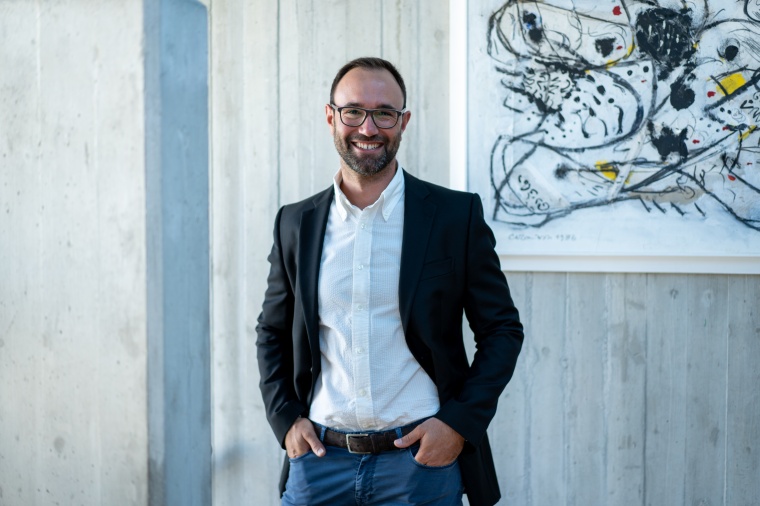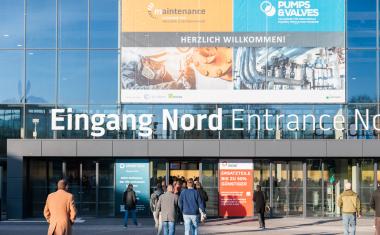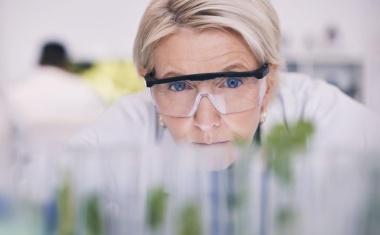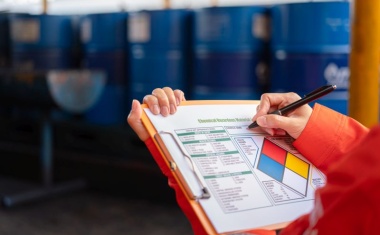Expert Interview: GianMarco Negrisoli, Flamma
So far, the pharmaceutical industry — including CMOs/CDMOs and CROs — has responded well to the outbreak of the Covid-19 pandemic. However, the coronavirus crisis has uncovered problems that have been smoldering beneath the surface and need to be addressed. That supply chains are vulnerable to disruption when major development, production and transportation hubs are blocked or shut down has become painfully obvious.
The ongoing pandemic is putting pharmaceutical R&D strategies to the test and also challenging manufacturing planning and supply chain management. Particularly in this industry segment, the supply chain is global, complex and interconnected. Each link must be strong enough to ensure that the road from lab to final drug product is as smooth as possible, even under the most difficult circumstances.
In addition to the pandemic, the growing threat of a no-deal-Brexit amid old and new trade conflicts and increasing protectionism, is putting even more stress on companies operating in the pharma sector.
In cooperation with Wombat Capital, a cross-border investment bank, CHEManager asked executives and experts of CMOs, CDMOs and CROs operating in the pharmaceutical sector to share their opinion on current challenges for their industry and how these challenges may influence changes in their market.

What in your opinion and from your perspective are the main impacts of the coronavirus pandemic on the drug supply chains?
GianMarco Negrisoli: We have seen a wide variety of scenarios playing out in the last couple of months, mostly related to the supply of raw materials. We have seen small delays of a few days to major delays lasting weeks. Fortunately, the long delays have been rare. The pharma industry by nature tends to invest a lot of time and money developing risk assessments and profiles. I believe we – as an industry – were somewhat more prepared compared to other industries.
Rather than plunging us into an unknown scenario, I think the pandemic showed the limits of existing supply chains and where we need to mitigate the risk for the future. For instance, increasing the number of approved suppliers even deeper in the supply chain. In general, I do not foresee a radical shift in how we supply drugs at the moment, at least for drug substance manufacturing.
Many Western CDMOs have already shifted operations back to the USA and Europe as intensive business activity in China has driven up labor costs. In addition, national policies, trade-related developments such as Brexit and the US-China dispute, and impacts of pandemics are likely to require repatriation of at least part of the supply chain in many countries. Could CMOs/CDMOs be beneficiaries of restructured supply chains?
G. Negrisoli: Repatriation of a portion of the supply chain was already an ongoing process and the current geopolitical scenario has certainly accelerated it, however there are numerous, deeper barriers in un-doing 30 years of globalization and re-integrating the drug manufacturing process. For example, the availability of raw materials, lack of environmentally friendly and cost-effective chemical processes, environmental restrictions, government regulations, and others are just a few issues that exist for CDMOs. The outcome of this process will mean having the same drug but a much higher cost. I see uncertainty whether governments will be ready to pay a premium for this. European and US CDMOs could certainly benefit from the shift but only up to a certain point in the supply chain, most of the bottlenecks of today will be still there. Regardless, the pharma supply chain is global and has been for a long time.
What do you think the impact of the repatriation of the drug supply chain will have on the M&A activity in the CMO/CDMO industry? Do you think that this would create an impact on valuations?
G. Negrisoli: The last few months in particular have shown how crucial the role of CDMOs are in the global supply of pharmaceutical drugs. In a scenario where governments will push for integrated supply chains and nation-based productions, the strategic importance (hence value) of CDMOs can only grow. Combined with the limited number of such companies which are able to compete at a global scale, I can foresee a growing M&A activity.
Has the inability to hold face-to-face meetings with prospective clients and conduct client visits to sites affected your new business development since the outbreak of the coronavirus pandemic?
G. Negrisoli: No, as a matter of fact we have seen an uptick in new customer inquiries. We believe our solid reputation speaks for itself and many potential new customers are approaching us thanks to positive recommendations from others in our industry.
EU regulatory authorities and the FDA have issued guidance on conducting clinical trials during the Covid-19 outbreak. Have you as a CMO/CDMO been affected by these changes?
G. Negrisoli: As of today, we were not affected by the new regulations.
The race is on to develop treatments and vaccines against Covid-19, and so is the need to assure supply of these potential drugs and vaccines. Pharma companies are leveraging their internal manufacturing networks but also partnering with CMOs/CDMOs. What supply and manufacturing strategies/alliances are in play?
G. Negrisoli: We collaborate with several pharma companies that have products in the pipeline for Covid-19. All of Flamma’s sites have worked throughout the first wave and continue to do so to accommodate the unforeseen and urgent need for these treatments to be quickly developed and scaled up.
The CMO/CDMO industry has managed to support efforts to develop vaccines and therapeutics for Covid-19 despite already being at a high level of utilization. What made that possible?
G. Negrisoli: I can only speak for Flamma. We were able to increase our output considerably through improved planning and increased shifts. Some less critical productions were also moved to the second half of the year. I also believe people’s motivation in fighting the pandemic played an active role in increasing production since it hit very close to home in Bergamo, Italy.
“Emerging”, “virtual” and other small (bio)pharmaceutical companies are driving the discovery and development of new drugs but are mostly dependent on the availability of financing – which could become more restricted due to the economic downturn cause by the economic and epidemiologic disruptions to the global economy. As emerging biopharma companies are important customers of CMOs/CDMOs, how is this going to affect your business?
G. Negrisoli: Flamma’s experience with emerging/virtual pharma companies through the pandemic has been very positive. Despite the difficult global financial scenario, all of them have experienced an acceleration of development programs, pushed by a growing interest from the financial markets into the health care segment. As the economic downturn pushes through next year, we might witness some companies focusing on orphan drugs with niche markets being more challenged on the financial side.
For the biopharma CMO/CDMO industry, the pandemic crisis has created great opportunities. What is your opinion on whether and to what degree the CDMO industry will enjoy long-term benefits from its role in tackling the current crisis?
G. Negrisoli: As I mentioned before, this current geopolitical situation has brought a strong interest in the general healthcare sector and, in particular, the drug manufacturing side. This segment has traditionally had little knowledge from the general public and has been “pressed” between tight pharma companies’ budgets, rising raw material costs and stringent environmental regulations. A certain degree of attention on how and where drugs are made can be only beneficial to the industry, but I do not believe in a revolution.
Looking at the broader picture, there are certainly some short-term benefits, but I believe that the looming recession which is endangering some countries’ entire welfare system will bring a potential long-term disruption. Most industrialized nations already have a stretched public debt, largely aggravated by rising healthcare costs, especially connected with our ability to treat more and more diseases and prolong life expectancy. With a possible decade-long recession ahead of us, I can see governments thinning their health care budgets and extended ROI of new treatments slowing down new research and driving away private capital.
Flamma actively participated in the recent wave of consolidation in the CDMO industry by acquiring Teva’s cGMP Chemical Synthesis Center in Malvern, PA. How has the integration of the facility into Flamma’s operations been particularly in the pandemic period?
G. Negrisoli: The pandemic didn’t really have any effect on the integration of the site: we started the integration in July last year, by February the group was mostly consolidated. Our plan to double in 2020 is still ongoing and on track, and other than conducting video interviews we had no impact. We stopped visits from the headquarters but the collaboration on projects continue as usual. From an EHS point of view, after going through the first wave of the lockdown in China in January and Italy in March, we had robust corporate procedures in place for our Malvern site. From a customer point of view, we suspended site visits until recently, yet it has been business as usual for all of Flamma.
This interview was conducted in cooperation with Wombat Capital, a cross-border investment bank providing mergers and acquisitions and strategic advisory services. With offices in New York and Paris, Wombat Capital focuses on the CDMO/CRO and pharma outsourcing sectors.












